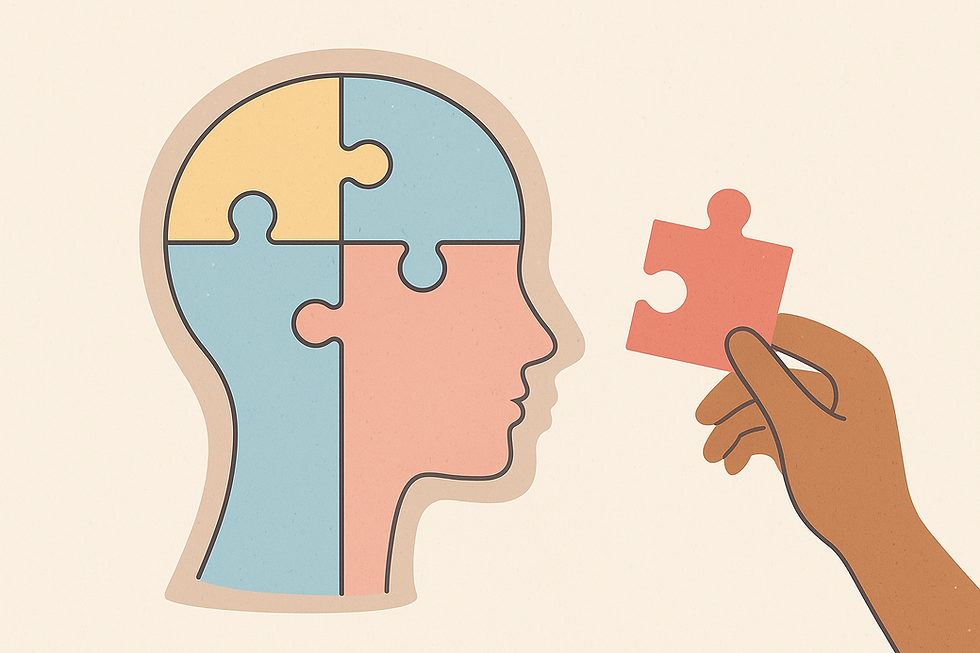Managing Holiday Depression
- Kris Lott

- Dec 10, 2018
- 3 min read
“’Tis the season…” You probably know the rest. It seems there’s a general expectation that this last month of the year will be merry and bright. But those who struggle with depression know that it doesn’t go away just because it’s “the most wonderful time of the year.” In fact, all those good tidings of joy might actually worsen existing symptoms. After all, depression is a hard enough battle without society sending the message that there’s something wrong with you if you don’t feel the holiday joy. If you’re finding it even more difficult than usual to manage your depressive symptoms this holiday season, read on for some tips on self-care as well as advice on when to seek depression counseling.
Set realistic expectations
When depression sets in, it can take more energy than normal to do the things you need to do to get through the day. Daily activities like going to work, taking care of your kids, grocery shopping, and cleaning the house suddenly become exhausting chores. And sometimes some of them don’t even get done. That can make the added tasks of the holidays seem particularly daunting. It’s crucial, then, for those who are managing depression during this season to prioritize. Don’t expect yourself to do it all this year. Talk with your family about realistic expectations around all the holiday extras such as card-writing, decorating, gift-preparation, baking, and attending parties and other holiday events. Decide which are most meaningful to you and your family, and figure out where you can trim or even delegate some of the responsibility. The extra time you’ll have and the reduced stress you’ll feel will go a long way toward keeping depressive symptoms from worsening during this hectic season.
Tune out some of the holiday “noise”
It’s inescapable this time of the year: the holiday music playing in all the stores, the movies showing on all the cable channels, and the endless ads on TV, the radio, and in print. It’s hard to ignore, and bright and merry as it is, it reinforces the belief that it’s a happy time of the year for everyone. But if you’re struggling with depression, it simply may not feel that way. Because depression can lead to increased feelings of guilt, anyway, why should you also feel guilty that you’re not as happy as you should be this season? You have control over how many of these holiday messages you take in, so why not consider limiting them? Be a critical consumer of all the seasonal “noise” that’s thrown your way this season. If the holiday music or movies lift your mood, immerse yourself in them. If, on the other hand, the store ads leave you feeling guilty about lacking the energy to do all the shopping this year, watch commercial-free movies instead. If you’re struggling with depression, you know that your baseline mood on most days is lower than normal. Give it a little extra TLC this season by structuring your holiday media intake with that in mind.
Seek depression counseling
So far, we’ve identified a couple of self-care techniques to manage depression this holiday season. They both involve setting limits in order to lift your mood and allow more time for the self-care that is so vital to staving off depressive symptoms. And if you’ve grappled with depression for any length of time, you probably already have other self-care habits in place that help. But if you find that it’s particularly difficult to continue managing it on your own, think about depression counseling as an additional option. Find a professional you feel comfortable with, whether it’s a psychologist, counselor, social worker, or clergy member, and let them share in your efforts to combat depression. Proper depression counseling can supplement the hard work you do every day to keep those depressive symptoms in check. And counselors’ understanding can help you normalize the challenges of finding the holiday joy when depression rears its head.




Comments